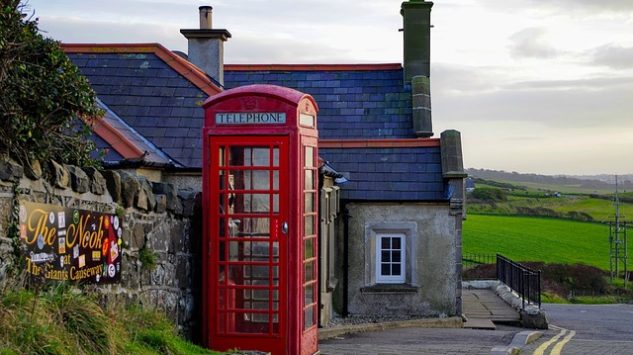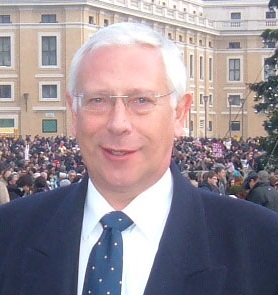Issue Briefs

No Brexit without a deal on the Irish Border
by Graham Bardgett
August 22, 2019
Diplomatic relations between the Republic of Ireland and the UK Government appear to have hardened in relation to the increasing prospect of a “No Deal on Brexit”. In Dublin, the Deputy Prime Minister Simon Coveney, who is also the Republic’s Minister for Foreign Affairs, has said that Ireland would not be carrying out bilateral negotiations with the UK in relation to no-deal Brexit planning. Speaking on the State Broadcasting Authority RTÉ, he said that there has been much discussion over the past two years on contingency planning in the event of Britain leaving the European Union without a deal. However, he said discussions in relation to preparations for a hard Brexit must be between the EU and the UK, and not between the Irish and British governments.
A host of daunting issues
The UK Prime Minister was in Germany and France to meet with the two countries leaders. Boris Johnson, in power only since July 24, was following up on his letter to EU Council President Donald Tusk on the disputed Backstop arrangements over Northern Ireland.
Bank of England Governor Mark Carney has already warned of a shock to the UK Economy if a No Deal Brexit takes place. And he warned of previously profitable companies having to lay off workers as profits plummet.
The whole issue of EU Agricultural Subsidies after the UK has left the EU is still unresolved. National Farmers Union leaders are urging the UK Government to be clear on policies amid fears of widespread disruption to food supplies and of the exporting of chicken, beef, lamb, and milk.
And even the possibility of another EU Referendum or a General Election is still very much discussed. Scotland and Northern Ireland had predominately voted not to leave the EU in the Referendum three years ago. But Boris John said he was committed to leaving – “Do or Die”.
Ireland and Great Britain
It emerged Wednesday, 21 August that Mr Coveney said it was not the case that the Irish Government was refusing to talk to the UK. But he said he would not be facilitating the UK in walking away from commitments in the Withdrawal Agreement.
“We are not in the business of facilitating the UK moving away from commitments that they’ve made to Ireland and the EU to protect the Good Friday Agreement, to protect an all-island economy, which is a commitment that they have made, and to replace that with some sort of makeshift deal in the weeks before a no-deal,” he said. “Instead what we have been doing for over a year now, is we have been planning for contingency in the context of a no-deal Brexit should that happen.”
Complex bilateral issues
New hopes of a restoration to the Executive and Stormont Assembly in Northern Ireland have emerged however – absent now for two years. Mr Coveney said it was realistic to expect a return of power-sharing at Stormont before Britain is due to leave the EU on 31 October, however he admitted that it will not be easy.
It followed a meeting with the Northern Ireland Secretary of State Julian Smith, Prime Minister Boris Johnson’s Representative in Belfast, about the lack of government in Northern Ireland for the last two and a half years, and about Brexit.
Speaking to RTÉ News Mr Coveney said it was important that he developed a good personal relationship that is based on trust with Mr Smith.
Mr Coveney said commentary about the events in Northern Ireland over the past two weeks has become “course, divisive and difficult”. Mr Coveney said he is not surprised by recent comments by the Taoiseach, British Prime Minister Boris Johnson or EU Council President Donald Tusk.
He said Boris Johnson has outlined the position his new government is taking on Brexit, which according to Mr Coveney is less compromising, and the EU and Ireland have responded.
Dealing with the EU
Mr Tusk, the EU Council President, meanwhile said Mr Johnson had no “realistic alternatives” to the backstop element of the Withdrawal Agreement. In his letter to Mr Tusk the British Prime Minister outlined his opposition to the backstop and called for it to be scrapped. However, the Mr Tusk said it was an insurance to avoid a hard border on the island of Ireland. “Those against the backstop and not proposing realistic alternatives in fact support re-establishing a border. Even if they do not admit it,” Mr Tusk said.
Over the next few weeks Mr Coveney said he will be visiting a number of EU States including Helsinki, Prague, Warsaw and Copenhagen to reinforce the Irish message and appreciation of the solidarity shown to Ireland during the Brexit process. He said they will continue to seek a way to find a deal to avoid a no-deal Brexit but ultimately, he said, it will be a choice for the British government.
The views and opinions expressed in this issue brief are those of the author.
 |
Graham Bardgett is a Global Policy Institute Fellow. He has reported for the Los Angeles Post Examiner and Baltimore Post Examiner and is a former BBC Radio News sub-editor in London and Veteran reporter of the Northern Ireland Troubles and Peace Process. He had five years on the news desk of BBC Northern Ireland, nine years as a security reporter on the Belfast Telegraph, four years as Ireland staff reporter for the Daily Mail, and was a correspondent for the Financial Times, Daily Mirror, Sunday Express, and Irish Daily Mail. During his career he has also reported from Berlin, Luxembourg, and Rome, and carried out public affairs critical incident consultancy work in Kazakhstan and in London. He had four years with PwC international accountants and consultants; and was previously a UK Government Higher Executive Press Officer. |